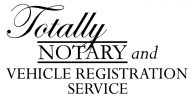Some documents have the legal requirement that the signer’s signature be witnessed. This is primarily to prevent forgery. The witnessing requirement may be in place or in addition to a notarization requirement.
One of the most common documents that require both witnessing and notarization is the General Power of Attorney for use in India.
The purpose of this Power of Attorney is to grant power to an resident of India to act as an agent for a purchase or sale of property on behalf of a resident in the United States.
Unfortunately, many signers misunderstand the purpose of the witnesses. They mistakenly believe that the purpose of the witnesses is to validate the content of the document or to verify that the Principal (the signer) understands the legal document they are signing. Acting on that misapprehension, the signer often requests the witnesses sign before the signer takes the document to the notary to be signed and notarized.
The primary duty of the witness is to watch the signer physically sign the document to prevent forgery. If the witnesses sign before the signer does, they have failed in their primary duty.
Sometimes a witness also certifies they have personal knowledge of the signer. For example, a Canadian Transfer of Land document requires the witness to personally know the signer and be willing to certify that the individual who signed the document was indeed the person named in the document.
Who can be a witness?
The witness should be an adult at least 18 years old and impartial. The witness should neither be named in the document, nor benefit financially from its signing, The witness should be of sound mind. The best witnesses are those that know the signer such as friends, neighbors, or co-workers.
What other documents are witnessed?
Mortgages, Power of Attorneys, Last Will and Testaments, Deeds, Advance Health Care Directives and foreign documents related to property transfer.
What if the document needs to be witnessed and notarized?
Ideally, the signer, witnesses and notary would meet at the same time. When done that way, the witnessing and notarization occur in one step. Mobile notary services are usually the best way to accommodate all parties in this situation.
If that is not possible, this alternative is permissible in CA:
CA law allows a document that requires an Acknowledgment notarization (like most Power of Attorneys) to be signed in advance and then presented to a notary for notarization. Provided the signer appears before the notary, furnishes satisfactory evidence of their identity and “acknowledges” that they signed the document prior to coming before the notary, the notary can perform an Acknowledgment notarization.
Based on that scenario the following steps would apply:
- The Principal (signer) signs the Power of Attorney while the witnesses watch (which satisfies the witness requirement)
- The witnesses sign that they observed the signature (It is recommended that they print their name below their signature)
- The signer then takes the signed and witnessed POA to the notary
- The signer provides satisfactory evidence of his identity and acknowledges to the notary that he signed it prior to appearing before the notary
- The notary performs an acknowledgment notarization
©2017 Totally Notary All Rights Reserved


Leave A Comment